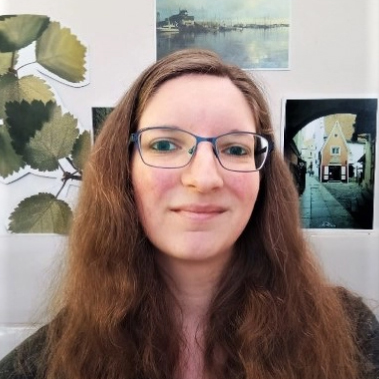Anna Derksen is working at the Göttingen Academy of Sciences and Humanities in Lower Saxony since March 2025. Previously, she has supported the IRTG “Baltic Peripeties” as Assistant Lecturer from 2021 to 2025, where her tasks included fostering collaboration across diverse academic disciplines and cultures, co-organising courses and events, and providing support to (international) PhD researchers. From 2016 to 2020 she was a researcher in the ERC-funded project “Rethinking Disability: The Global Impact of the International Year of Disabled Persons (1981) in Historical Perspective” at Leiden University. With a background in Cultural Studies, Political Science and Modern History, she is particularly interested in 20th century Nordic and Scandinavian history, disability studies and eugenics, as well as experiences of welfare and social policy interventions.
Anna Derksen
